© 2023 Olga López
© 2023 Urantia Association of Spain
Bulletin of the Urantia Association of Spain
Light and Life — January 2024
¶ In this issue
- Editorial – January 2024 — M. José Sánchez Santamaría
- Jobs – our recommendations of the month
- History and teachings: Chronicle of the life of Jesus
- Urantia Book Children’s Guide: Jesus at Age 16
- Other books on spiritual growth
- Recommended video
- Navigating through life: The six blind wise men and the elephant
- My favorite paragraph — Luis Alfonso Rojas Rosillo
- Urantian Questionnaire — Luis García Bory
- The Barcelona study group turns 20 years old
¶ Editorial – January 2024 — Mr. José Sánchez Santamaría
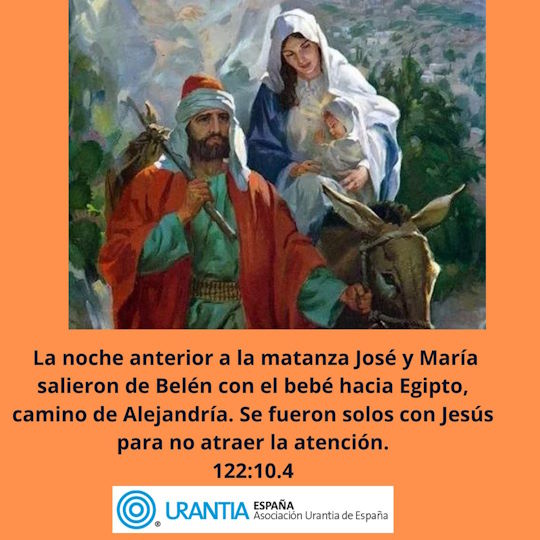
Be yourself
One more year, the long-awaited Christmas holidays bring us short days, cold weather and numerous beautiful scenes in nature: the mistletoe shows off its fruits, the fir trees decorate our cities, the poinsettia lights up our homes with its intense red or the ice sparkles at dawn.
It also brings us a new year, 2024, a year that we just started now in January. A year that still gives off the smell of our beautiful Christmas wishes: our desire to take care of what is beautiful, to search for what is true, to offer the world the best of ourselves.
These messages of good Christmas wishes, these messages that speak of the “arrival of a Savior,” of opening our hearts, radically clash with many messages that surround us on social networks and the media, all of them in the hands of large multinationals that are not interested in empowering human beings or seeking their liberation by alluding to the transcendence in our lives. On TV, on Instagram, talking about God or our divine spark is still not very well regarded. Talking about death and what lies behind it in our work or with friends may sound strange or suspicious, but that is precisely what the world needs after Christmas: bringing the everyday to that light that we know it needs to transform.
¶ Works – our recommendations of the month
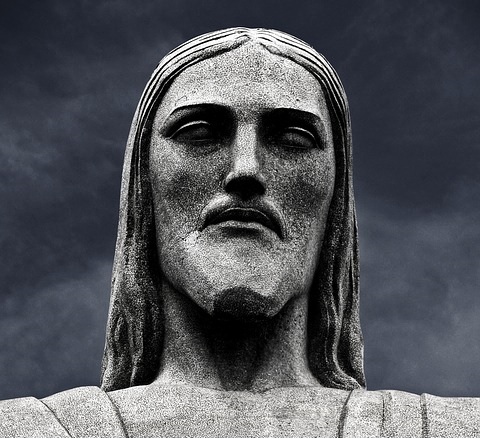
Jesus, man and myth (Dick Bain) (also on the association’s website)
The author says at the beginning of the article: “Many of those who knew Jesus only by hearsay assumed that he was the reincarnation of some known prophet. Some of his enemies seemed to think that he was an ally of the prince of demons. But the apostles, who had lived with him for more than a year, believed that he was the Son of God, and also in some way the Messiah expected by the Jews. This certainly did not settle the question: the search for Jesus’ identity has continued for 1,900 years and has not yet ended.” In this work, the author takes a tour of the evolution of the concept of Jesus in later Christianity, as well as a review of the historical Jesus. One thing is certain: there has not been a person who has had such an impact on the history of our planet.

Testimonies from readers of The Urantia Book (compiled by Saskia Praamsma) (also on the association’s website)
This article is an excerpt from the book How I found The Urantia Book, written by Saskia Praamsma, which collects the testimonies of 324 readers who decided to write down their (sometimes long) journey in search of the truth, and how they finally found the book (or how the book found them). This book has not been translated into Spanish, and for that reason Antonio Moya had the idea of extracting those paragraphs that he considered most interesting or significant, or that could teach us something, and translating them into Spanish. There is something extremely edifying in reading how other people found the book, and we can surely identify with many of those testimonies.

Evolution and progress (Eduardo Altuzarra) (also on the association’s website)
These two concepts, so closely linked, are key to our survival beyond death. This article deals, among other things, with the steps necessary to progress spiritually, to be born of the spirit, taking as a reference the teachings of The Urantia Book and complemented with quotes from other sources. Well, as the author says: “If we have enough courage to dare to take an x-ray of our interior, of how we think, of our personal development and we are sincere enough with ourselves, it will not take long for us to realize where we are failing and what steps we should take.”
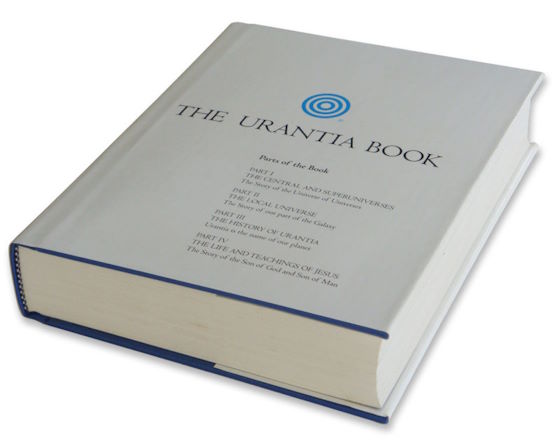
The Cultural Impact of The Urantia Book in the Next 50 Years (Meredith Sprunger) (also on the association’s website)
The author begins this article with these questions: “What will be the cultural impact of The Urantia Book in the next 50 years? Who among us can be sure what will happen tomorrow? Humans have made predictions about the future since the beginning of history. When we examine such prophecies, one is struck by the inaccuracy of a large percentage of these predictions, even when made by the most educated people.” Written in 1992, this article speculates on the cultural impact the book’s teachings will have in the year 2042. Will the author be right? Only time will tell.
¶ History and teachings: Chronicle of the life of Jesus
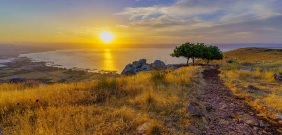
JOURNALISTIC ACCOUNT OF THE LIFE AND TEACHINGS OF JESUS ACCORDING TO THE URANTIA BOOK
We present to you the next installment of the chronicles of the life of Jesus, which on this occasion contains what the revelators tell us in paper 151 (The teaching season by the sea). Inside the PDF you will see a button from which you can access the text of the document from the Urantia Foundation website.
¶ Urantia Book Children’s Guide: Jesus at Age 16
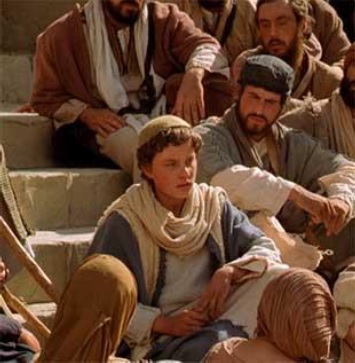
We continue reviewing the secondary work A Child’s Guide to The Urantia Book, by Mary Livingston. This is the next chapter, which deals with the stage in which Jesus was 16 years old, and begins like this:
“Jesus had to work hard to support his family. Mary was saddened to see him working so hard and so young. Even though he worked hard, they were poor, very poor. No fifteen-year-old has had a life as hard as Jesus had. He really knows what it is like to be a child.”
Download the full chapter in PDF format
¶ Other books on spiritual growth
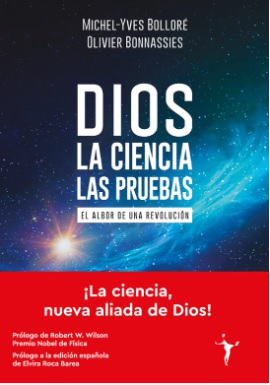
God: science, the evidence (Michel-Yves Bolloré and Olivier Bonnassies)
For nearly four centuries, from Copernicus to Freud, through Galileo and Darwin, scientific discoveries accumulated in a spectacular manner, giving the impression that it was possible to explain the universe without the need to resort to a creator god. Thus, at the beginning of the 20th century, we witnessed the intellectual triumph of materialism. In a way as unexpected as it was surprising, the pendulum of science swung in the opposite direction, with incredible force. The discoveries of relativity, quantum mechanics, the expansion of the universe and the complexity of life came one after another to dynamite the certainties anchored in the collective spirit of the 20th century, to such an extent that today we can say that materialism, which was never more than a belief like any other, is in the process of becoming an irrational belief. The authors of this book take up, in an exciting way, the history of these advances and offer a rigorous panorama of the new evidence of the existence of God. At the dawn of the 20th century, believing in a creator god seemed to be opposed to science. Wouldn’t it be the opposite today? An invitation to reflection and debate.
¶ Recommended video
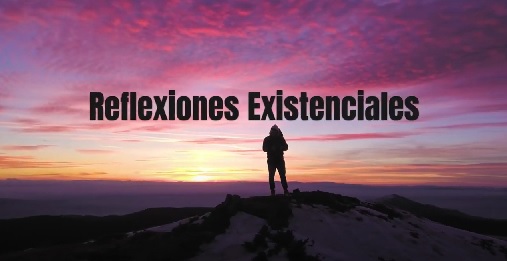
The meaning of life is… (Urantia Association of Spain)
In this video from the channel of the Urantia Association of Spain, some reflections are presented on life and how it arose in our world. These reflections are inspired by the teachings of The Urantia Book (although no explicit reference is made) and they are based on the fact that life has had intelligent planning behind it, which evolved from simpler to more complex organisms and adapted to changes in the environment. From this process emerged the human being, capable of creating technology, science, art, and above all capable of seeking answers to questions about his own existence and what lies beyond his world.
https://youtu.be/mK8XKkYcJc0?si=_y8RzYZ7cCeKw40j
¶ Navigating through life: The six blind wise men and the elephant
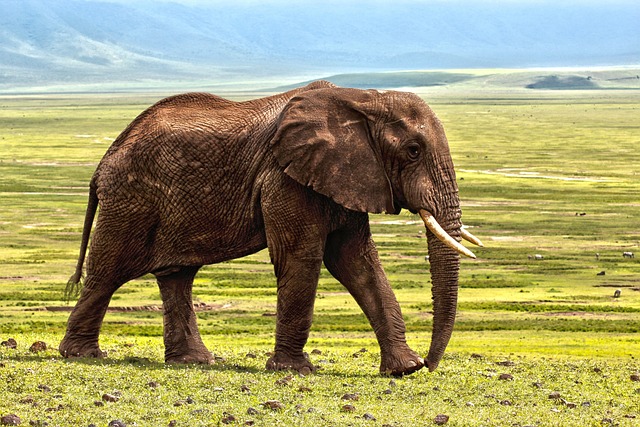
On one occasion there were six wise old men who did not have the gift of sight, being blind and using their sense of touch to experience and learn about the different realities, beings and objects in the world. None of these wise men had ever seen an elephant, and after learning that their king had one, they humbly asked to be able to meet it. The monarch decided to grant their request and took them to the pachyderm, allowing the elders to approach and touch it.
The wise men approached the animal and, one by one, touched the elephant in order to find out what said being was like.
The first one touched a tusk, and considered that the elephant was smooth and sharp like a spear. The second wise man approached and touched the elephant’s tail, responding that it was actually more like a rope. The third would come into contact with the trunk, referring that the animal looked more like a snake. The fourth would indicate that the others must be mistaken, since after touching the elephant’s knee he came to the conclusion that it was something similar to a tree. The fifth denied this by touching the being’s ear, assessing that it looked like a fan. Finally, the sixth wise man came to the conclusion that the elephant was actually like a strong rough wall, having touched its back.
After reaching different conclusions, the wise men began to argue about who was right. Since they all defended their positions with determination, they sought the help of a seventh wise man, who could see. He made them see that in reality they were all partly right, since they had been describing only one part of the whole animal, while at the same time, without making a mistake, none of them had been able to know it in its entirety.
Our point of view is not the only one that exists regarding reality: we must value that the opinions, beliefs or knowledge of other people can be as valid and true as ours, without the need for either of us to be wrong.
¶ My favorite paragraph — Luis Alfonso Rojas Rosillo

The exercise of selecting one of my favorite paragraphs from The Urantia Book to share with you leads me to value more the experience of dynamic religious living. Surely you have read and reread the same paragraph at different times, and experienced a new understanding each time. Possibly, it is the result of an effort beyond the purely intellectual. Five years ago I would have shared another one, but this time I have my attention focused on this one:
Men too often forget that God is the greatest experience of human existence. All other experiences are limited in nature and content, but the experience of God is limited only by the creature’s capacity for understanding, and this very experience itself expands that capacity. When men seek God, they are seeking everything. And when they find God, they have found everything. The search for God is the unlimited bestowal of love accompanied by the astonishing discovery of a new and greater love to bestow.
¶ Urantian questionnaire — Luis García Bory

I am currently an entrepreneur in the nutrition sector based in Geneva, Switzerland. Although in the past I have worked in the areas of banking and finance, strategic business consulting and international business, as well as in the world of entrepreneurship in innovation and corporate digitalization.
I am originally from Mexico, and in addition to Switzerland, I have lived in the US, the UK, France and Germany. I am not yet married and am single with no children. In addition to loving my family, friends and spirituality, I love philosophy, psychology, technology, scientific research, entrepreneurial inventiveness and innovation, art, music, cooking and yoga.
1. How did you come across The Urantia Book and why do you think you found it?
Through my brother Victor, who when we were teenagers introduced me to the books The Trojan Horse and The Rebellion of Lucifer by the Spanish writer Juan José Benítez. It was in this last book where my brother Victor found the first reference to what J.J. Benítez then referred to as the “Iurancha Foundation.”
¶ The Barcelona study group turns 20
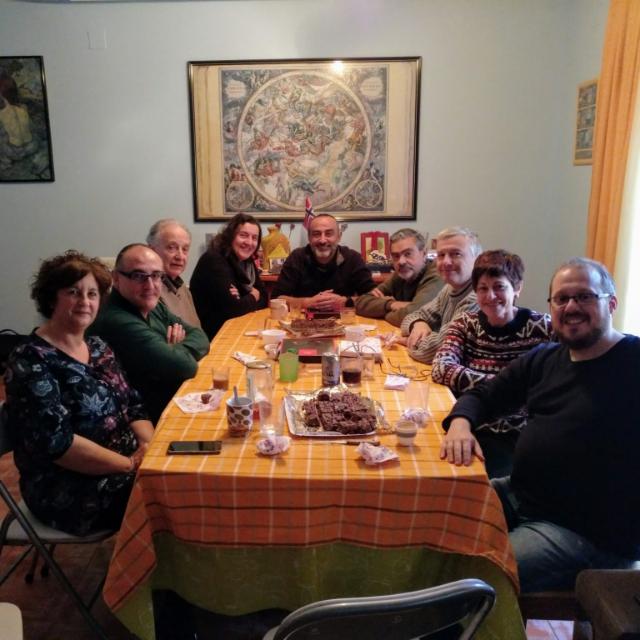
In January 2004, and thanks to a “final push” motivated by the visit of trustee Richard Keeler and Victor Garcia-Bory (then the Foundation’s liaison with Spanish-speaking readers), who met with different readers in Barcelona in November 2003, we decided to begin meeting as a study group. We asked among those attending the meeting who would be interested, and that was the germ of the group that began to meet to study The Urantia Book on the last Sunday of each month.
At the first meeting, we decided to meet on the last Sunday of the month at my house. At that time our daughters were small and we preferred to offer our house so we wouldn’t have to travel and leave them in the care of other people. Over time our daughters grew up, but we continued to maintain the meeting place, as it suited us all.
Curiously, and although we call ourselves a “Barcelona study group”, we have never had members who lived in Barcelona city for a long time. The geographical location of Vilanova i la Geltrú, where I live, means that it is halfway between Barcelona and Tarragona, which has helped us to have members from both provinces. We have even had attendees who lived in the south of France, and who came to our meetings to spend the day (or a couple of days) in the surrounding area.
We have also had visits from readers from other groups, such as the Girona study group, the one from the northern area… we have even had the privilege of having readers from other countries with us, and they have been memorable occasions in which to enjoy the friendship of so many kindred spirits and chat about the teachings of the book.
Over time we have been changing the way we operate, we have read The Urantia Book in full at least once, we have celebrated Jesus’ birthdays in August, we have changed the translations used, we have incorporated virtual meetings since the coronavirus pandemic, there have been readers who came and went, but we have always maintained this space so that all readers who live nearby know that they have a group that will welcome them with open arms and allow them to share their concerns related to the teachings of the book in an atmosphere of respect and camaraderie.
To celebrate reaching this milestone, we will have a meal (birthday cake included) with all the members who want and can attend, just as we did when we finished the first complete reading of the book. Study groups are not only for reading the book and delving deeper into its teachings, but also for creating bonds of friendship and fraternizing among ourselves. Someone said that study groups are our “church,” where those of us who want to read the book together and learn things that we would not have discovered on our own meet. Study groups are a fundamental pillar of the Urantia community, and for our part, we will do everything possible to keep ours active for a long, long time.
¶ New courses from the Urantia Book International School (UBIS)

A new quarter of courses begins in January at the Urantia Book International School (UBIS). The registration period begins on Monday, January 8 and ends on Sunday, January 21. Courses begin on Monday, January 15 with orientation week.
These are the courses that will be offered this quarter:
- The Universal Father: To love Him is to know Him. Facilitated by: Olga López. Level: basic. Duration: 10 weeks.
- The road home: finaliters. Facilitated by: Jaime Marco. Level: intermediate. Duration: 10 weeks.
- Knowing God. Facilitated by: José Manuel Díaz Roldán. Level: advanced. Duration: 6 weeks.
- What awaits us after death: the survival of the personality. Facilitated by: Flor Robles. Level: basic. Duration: 10 weeks.
- The evolution of the family, the main civilizing force. Facilitated by: Erika Webster. Level: basic. Duration: 8 weeks. Study group format.
If you are interested in requesting a course, you must first create an account on the school’s website, http://ubis.urantia.org. This can be done before registration begins.
Spaces are limited, so sign up as soon as possible!
For more information about the courses, you can visit this page
¶ January Urantia Talks

The Urantia Association of Spain organizes and sponsors the so-called “Urantian talks,” Zoom sessions in which a presenter offers a topic of introduction, followed by a moderated discussion among attendees.
These are the talks scheduled for the month of January:
Friday 12: AI: technological dictatorship or ally in our lives? (Miguel Mallorca)
Friday 26: Current events. Towards Light and Life (Marinett Morales)
Place: Zoom room of the Association
Time: 7:00 p.m. (Spanish peninsular time)
¶ About the Luz y Vida newsletter

Luz y Vida is the newsletter of the Urantia Association of Spain. From 2005 to 2016 it was published in PDF format and distributed by post and email to the association’s reader list, but is currently distributed in newsletter format from HTML content.
If you wish to receive the newsletter in your email, contact the association to be subscribed to the recipient list.
All work and news from readers and study groups are welcome, so if you wish to share any secondary work, writing, outline, image, etc., you can send it to the association and we will publish it after evaluating its suitability. Likewise, the Communications Committee of the board of directors of the Urantia Association of Spain reserves the right to edit it to meet minimum spelling quality standards.
¶ References
- Index of the magazine “Luz y Vida” of the Association of Spain
- This article from the magazine “Luz y Vida Online”
- Index of the magazine “Luz y Vida Online”